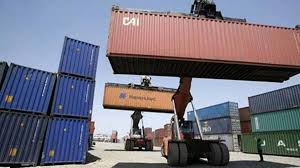
Increased freight charges, doubled turnaround time of cargo and steep hikes in insurance premiums have forced small and medium export oriented units to halve their outputs with most presently operating at around 50% of their respective capacities.
The prolonged Russia-Ukraine and Iran-Israel conflicts coupled with the economic instability in American and European markets have had a crippling impact on the MSME sector. Increased freight charges, doubled turnaround time of cargo and steep hikes in insurance premiums have forced small and medium export oriented units to halve their outputs with most presently operating at around 50% of their respective capacities.
Commenting on the challenges which have emerged as a fallout of the geopolitical and economic turmoil across the globe, Brij Mohan Sharma, Joint managing Director, RSWM Limited, LNJ Bhilwara Group, a leading yarn and knitting fabric manufacturer, said, “Due to the ongoing crisis in Middle East and in Europe, exporters are facing multiple problems that include the non-availability of containers, multifold rise in freight charges and a steep rise in the insurance premium of the cargo.”
Sharma said, “The freight charges have witnessed a massive surge of around five fold to ten fold and the turnaround time has more than doubled. The freight charges for a single container shipment to Turkey, Italy and the US have reached around $ 2,700, $ 2,500 and $ 3,600 per container from the previous rate of around $ 500, $ 600 and $ 300 per container, respectively.”
Apart from the freight charges, the turnaround time for shipments has also witnessed a twofold increase and reached to around 60 days and 70 days for Europe and the US against the previous turnaround time of 25 days and 20 days respectively. “Additionally, around a 30% hike in insurance premia and the huge spike in raw material prices due to the 3% to 5% increase in prices of crude oil, is also creating problems for the exporting units in the country”, added Sharma.
When asked about the difference in the impacts on big and small players, Sharma told FE, “As of now, the small players are the biggest sufferers. Unlike the MSMEs, the big players have the financial muscle while the small units are finding it hard to maintain the income flow required to keep themselves afloat.”
According to sources in the industry, most of the units are operating at around 50% of their respective capacities and there have been job losses in the industry also. “Out of 60 major exporting units in Ahmedabad, only 3 units are operating at near full capacity while the remaining 57 units are operating at around 50% of the capacity. Furthermore, even big players are struggling due to the continued muted demand in European markets. Players like Raymond, which used to produce in-house, have reportedly moved to outsourcing the manufacturing. Arvind, one of the largest textile players, is also believed to be operating at around 70% of their capacity”, said an industry source on the condition of anonymity. Attempts to reach out to both Raymond and Arvind proved futile.
Talking about the impact of the crisis, Priyam Patel, Managing Director, NK Proteins Private Limited, a leading edible oil player of Gujarat with brands like ‘Tirupati’ and the largest exporter of castor oil and derivatives, said, “The trouble brewing in the Red Sea region has led to a surge in freight charges, while transit times have nearly doubled, resulting in shipment delays as freighters are forced to take longer routes. Europe is a key export market and the freight charges to European countries have seen upward pressure.”